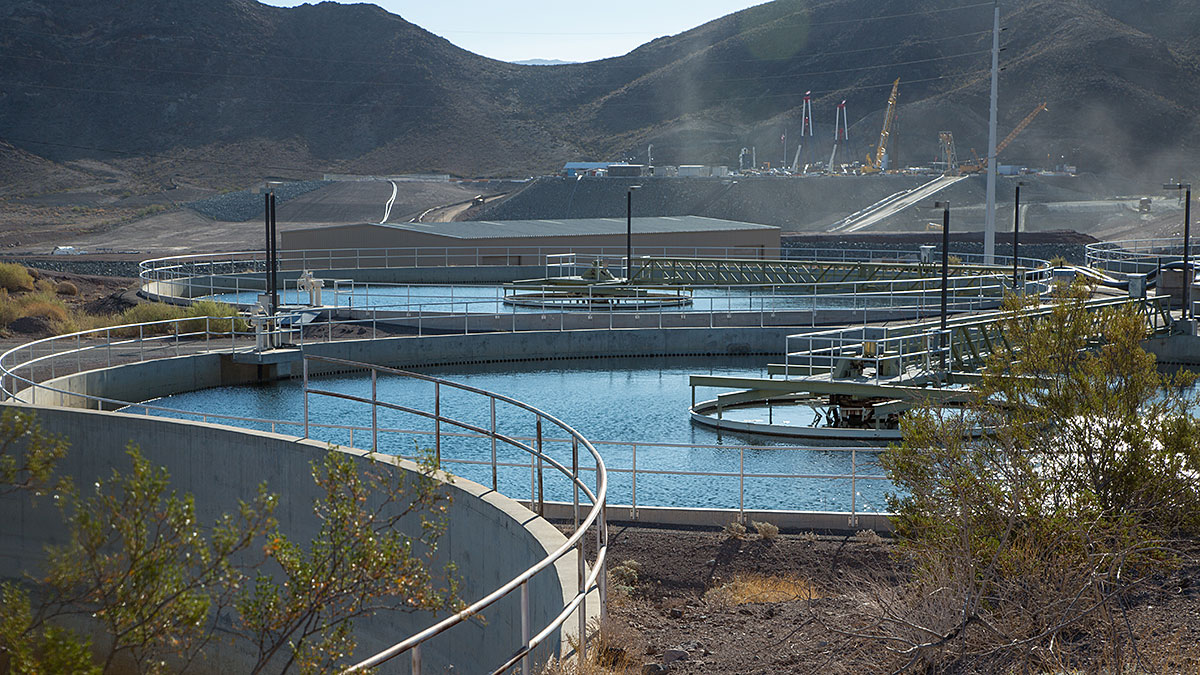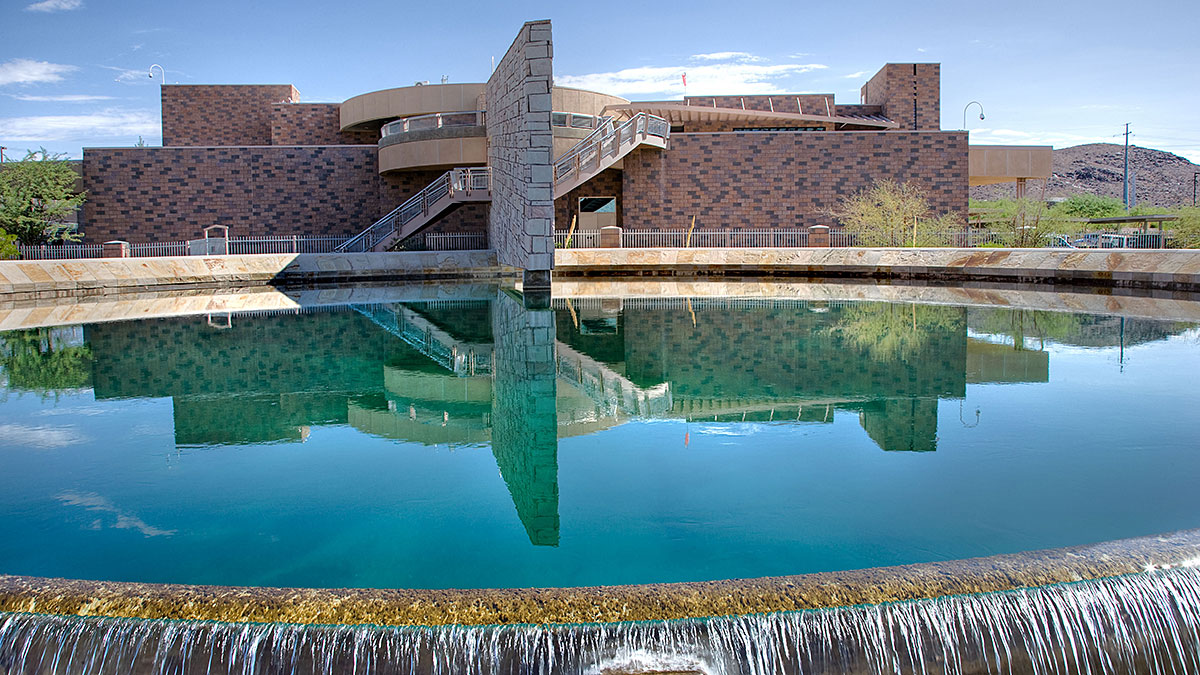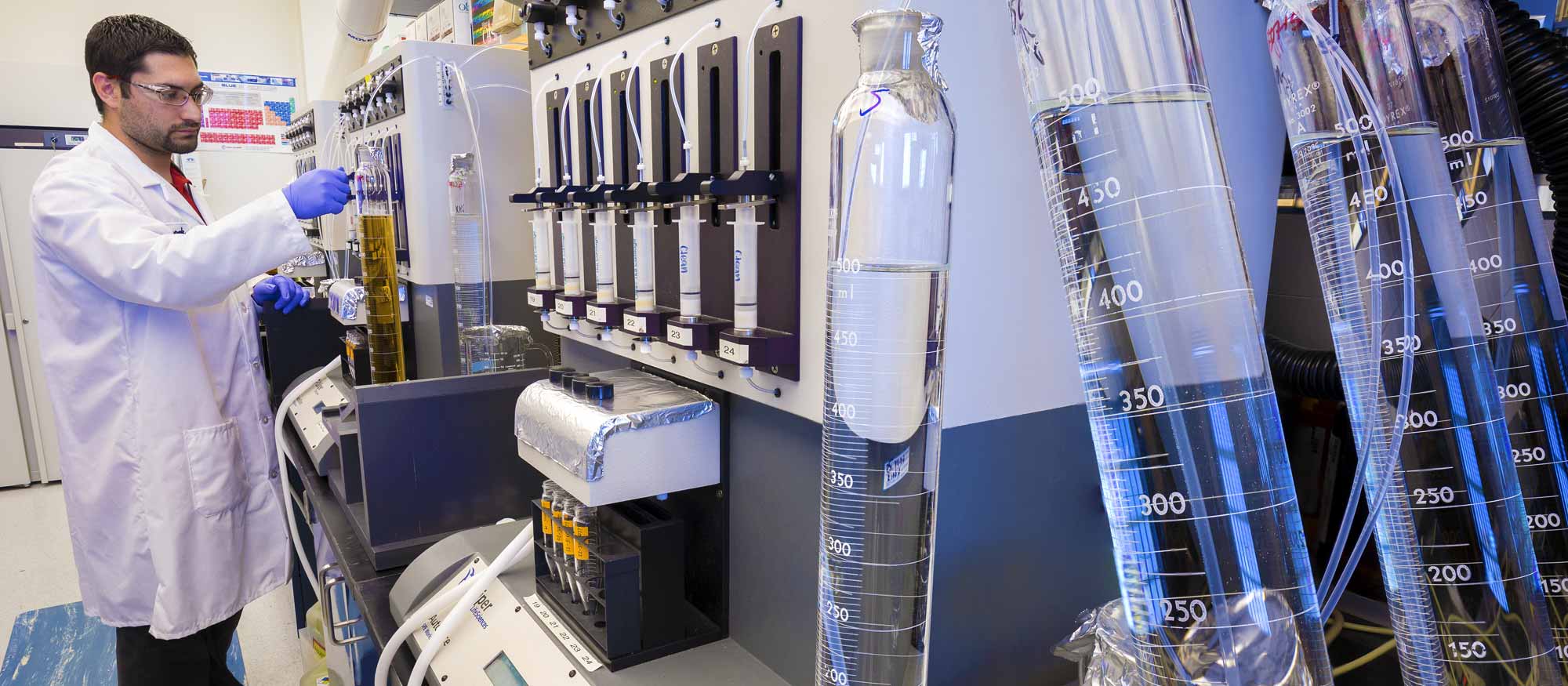The Southern Nevada Water Authority uses cutting edge technology to ensure that your water is treated and tested to the utmost standards of safety.
We're committed to ensuring your water quality, reliability, and security because we know you depend on it every day.
We not only test for more contaminants than required; we test many regulated and unregulated contaminants more frequently than required.
Testing of your water
In 2025, Water Authority laboratory staff members:
- ☑️ Collected more than 66,000 water samples
- ☑️ Conducted more than 328,000 analyses of those samples
- ☑️ Monitored for 91 U.S. EPA-regulated and 75 unregulated contaminants
- ☑️ Monitored water quality in "real time" 24 hours a day, 365 days a year
Intensive testing can detect contaminants in concentrations of parts per billion (ppb). To put that in perspective, one ppb is equivalent to 1 inch in 15,750 miles or one drop of water in an Olympic-sized swimming pool. This ability can help us detect-and manage-potential water quality issues before they become a regulatory concern.
The Water Authority ensures accuracy through a certification program requiring us to periodically test samples from an independent laboratory. The results of these analyses are compared to those conducted at the independent lab. Annual inspections of our treatment facilities also are included in the certification requirements.
The numbers make it clear
Your water is analyzed more than 328,000 times a year, treated and monitored 24/7 by a team of technical experts.
Our Water Quality Lab ensures your water surpasses drinking standards
The Southern Nevada Water Authority's Water Quality Laboratory and Applied Research & Development Center houses one of the most sophisticated municipal water quality laboratory complexes in the world.
To ensure that water delivered to Southern Nevada's municipal customers meets the requirements of the Safe Drinking Water Act, the laboratory water quality monitoring staff collects samples from the lake to the tap. Samples are taken from neighborhood sampling stations, Lake Mead, as well as groundwater wells, reservoirs, and other locations.
Our laboratories are certified by the Nevada Division of Environmental Protection. Additionally, the Microbiology Laboratory is among the few municipal facilities certified by the Environmental Protection Agency for cryptosporidium and giardia detection. Staff members proactively review drinking water regulations to anticipate changes to contaminant limits, testing requirements and analytical methods.
Biological contaminants
Like most water sources, Lake Mead is a living ecosystem of which microorganisms like bacteria, viruses, and algae are a natural part. Our Microbiology Laboratory staff ensures those biological contaminants aren't present in our treated water supply.
Chemical contaminants
Our Chemistry Laboratory has three areas of specialty:
- Metals: Acceptable concentrations of metals, such as lead, copper and arsenic are strictly limited by state and federal law.
- Organic compounds: These include potential chemicals such as methyl tertiary butyl ether—the gasoline additive commonly known as MTBE—and common household compounds such as paint solvent.
- Inorganic compounds: Substances such as perchlorate, phosphates and nitrate are tracked.
Treatment of your water
Water from Lake Mead is treated with small quantities of chlorine as it is withdrawn, to deter invasive quagga mussels, which do not impact water quality but can plug pumping equipment and pipelines.
Water is then sent to either the Alfred Merritt Smith Water Treatment Facility or the River Mountains Water Treatment Facility, where it is treated with ozone to kill potentially harmful microscopic organisms that may be present. A multistage filtration system is then used to remove particles from the water.
As the water leaves the water treatment facilities, chlorine is again added to protect it on the way to homes and businesses. It also is treated to minimize corrosion in the pipelines.
Because it is naturally filtered, water drawn from the Las Vegas Valley groundwater aquifer is simply treated with chlorine as it enters the distribution system.
What is ozonation?
Implemented in 2003, ozonation destroys bacteria and other microorganisms through an infusion of ozone, a strong disinfectant produced by subjecting oxygen molecules to high electrical voltages.
Ozonation destroys cryptosporidium, bacteria and other naturally-occurring organisms. It also can reduce the formation of trihalomethanes.
Ozone is a very strong disinfectant, but it does not stay in the water very long. Chlorine is still added to protect the water while it’s in the distribution system.

Alfred Merritt Smith Water Treatment Facility
Built in 1971, the Alfred Merritt Smith Water Treatment Facility currently treats most of the valley's drinking water. Improvements to the facility enhanced the plant's reliability and increased capacity to be able to treat 600 million gallons a day.
The addition of ozone treatment in 2003 put the facility on the cutting edge of water treatment technology. After a complex filtration process, water sent to the Alfred Merritt Smith Water Treatment Facility is treated with chlorine gas, a disinfectant, to protect it on its way to customer’s homes.
The facility was recognized with an Excellence in Water Treatment Award from the Partnership for Safe Water in 2019. The award recognizes those water utilities that have adopted best practices in water treatment, rather than merely satisfying regulatory requirements.

River Mountains Water Treatment Facility
The River Mountains Water Treatment Facility began delivering treated water to the Las Vegas Valley in 2002.
Currently, the facility can treat up to 300 million gallons of water per day, but was designed to expand to meet Southern Nevada's needs. In the future, the River Mountains facility will be able to treat up to 600 million gallons of water a day.
The facility uses ozonation and sodium hypochlorite to disinfect the water.
The treatment facility received the Partnership for Safe Water's Excellence in Water Treatment award in 2018, making the Southern Nevada Water Authority only the fourteenth of the nation’s 50,000-plus water systems to earn this elite designation.
▶️ Watch to learn more:
A vital piece of Southern Nevada's water infrastructure turns 20
